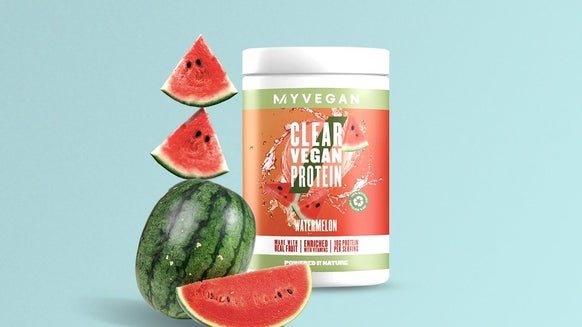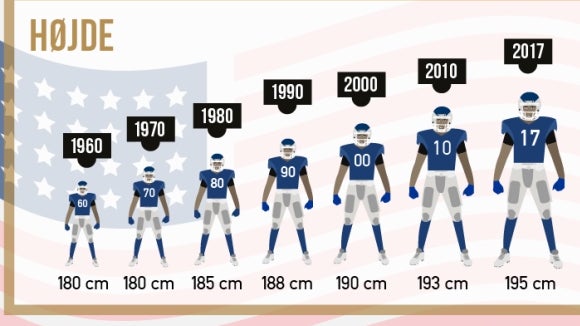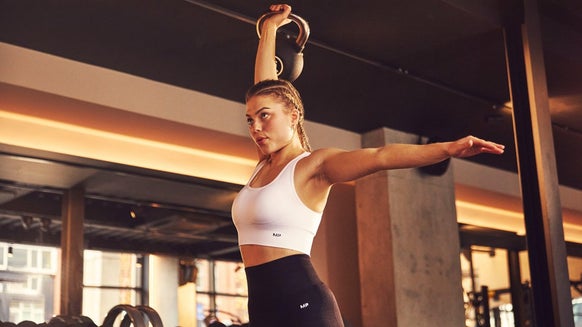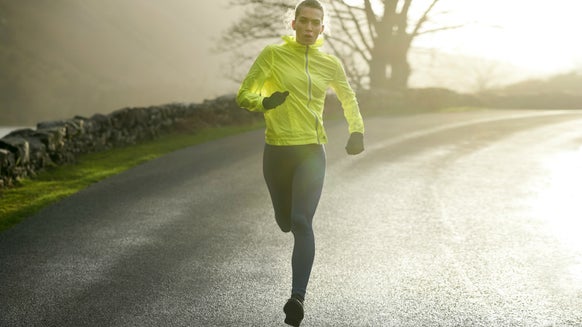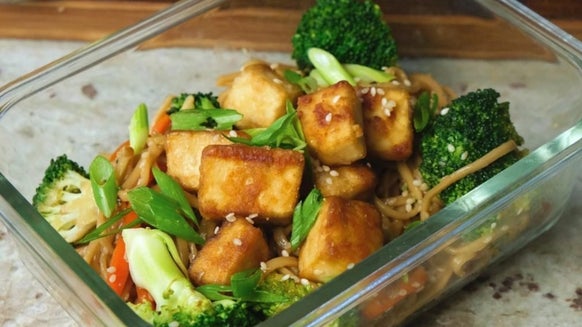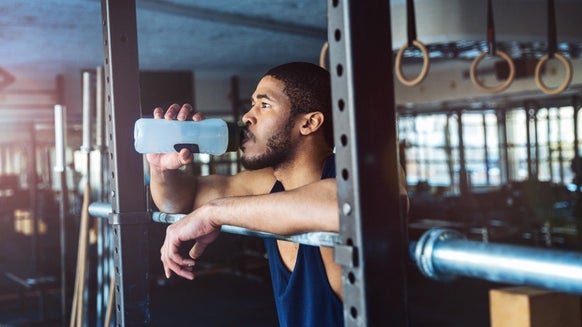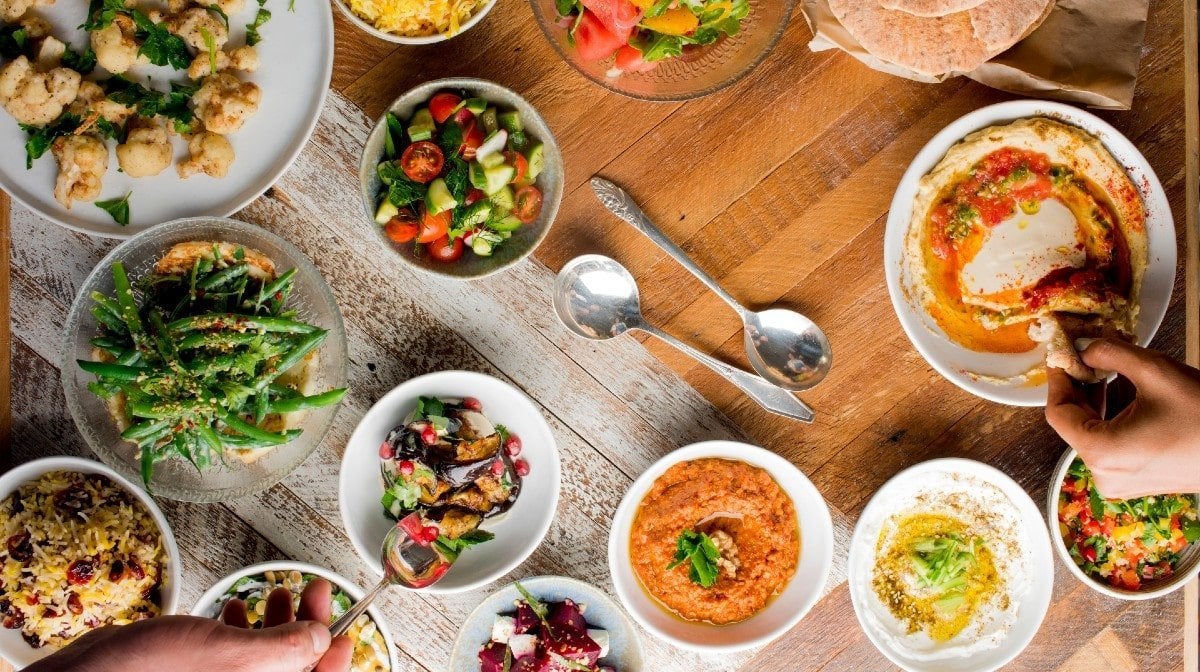
Lad os se på 7 fødevarer der gør dig glad...
1. Kulhydrater
2. Grønne bladgrøntsager
3. Fed fisk
4. Kød, fjerkræ og æg
5. Nødder og frø
6. Præbiotika og probiotika
7. Kaffe
Tips til fødevarer der gør dig glad
Spis en nærende morgenmad
Spis de rigtige fedtstoffer
Kort fortalt

Liam er en certificeret sports ernæringsekspert ved International Society of Sport Nutrition og er indskrevet på British Dietetics Association's Sport and Exercise Nutrition register. Han har en bacheloruddannelse i sport og Exercise Science og er kandidat til ISSN-diplomet i Applied Sport and Exercise Nutrition.
Liam er en erfaren personlig træner, der hjælper klienterne med at nå deres sundheds- og fitness mål med praktiske, vidensorienterede motion- og ernæringsrådgivning.
I sin fritid har Liam konkurreret i en række kraftløftningskonkurrencer og nyder bjergvandring, fodbold og få udvidet sit opskriftrepertoire i køkkenet. Få mere at vide om Liams erfaring her.
1. Arens U (2018) Authorised EU health claims for carbohydrates and maintenance of normal brain function. In: Foods, Nutrients and food Ingredients with Authorised EU Health Claims – volume 3. Woodhead Publishing
2. Burke, L., Hawley, J., Wong, S. and Jeukendrup, A., 2011. Carbohydrates for training and competition. Journal of Sports Sciences, 29(sup1), pp.S17-S27.
3. Benton, D. and Donohoe RT. (1999) The effects of nutrients on mood. Public Health Nutrition, 2(3a) 403-409
4. Giles GE; Mahoney CR; Kanarek RB. 2013 Omega-3 fatty acids influence in mood in healthy and depressed individuals. Nutrition Reviews (71) 727-74
5. nhs.uk. 2021. Fish and shellfish. [online] Available at: <https://www.nhs.uk/live-well/eat-well/fish-and-shellfish-nutrition/> [Accessed 16 February 2021].
6. Rintamäki R., Partonen T. (2011) Dietary Amino Acids and Mood. In: Preedy V., Watson R., Martin C. (eds) Handbook of Behavior, Food and Nutrition. Springer, New York, NY. https://doi.org/10.1007/978-0-387-92271-3_37
7. Rayman MP. The importance of selenium to human health. Lancet. 2000 Jul 15;356(9225):233-41. doi: 10.1016/S0140-6736(00)02490-9. PMID: 10963212
8. Nutritics. (2019). Research Edition (v5.09) [Computer software]. Dublin. Retrieved from www.nutritics.com.
9. Noona, S., Zaveri, M., Macaninch, E. and Martyn, K., 2020. Food & mood: a review of supplementary prebiotic and probiotic interventions in the treatment of anxiety and depression in adults. BMJ Nutrition, Prevention & Health, 3(2), pp.351-362
10. Ruxton, C., 2008. The impact of caffeine on mood, cognitive function, performance and hydration: a review of benefits and risks. Nutrition Bulletin, 33(1), pp.15-25
11. Fagerberg P. Negative Consequences of Low Energy Availability in Natural Male Bodybuilding: A Review. Int J Sport Nutr Exerc Metab. 2018 Jul 1;28(4):385-402. doi: 10.1123/ijsnem.2016-0332. Epub 2018 May 3. PMID: 28530498.
12. Byrne NM, Sainsbury A, King NA, Hills AP, Wood RE. Intermittent energy restriction improves weight loss efficiency in obese men: the MATADOR study. Int J Obes (Lond). 2018 Feb;42(2):129-138. doi: 10.1038/ijo.2017.206. Epub 2017 Aug 17. PMID: 28925405; PMCID: PMC5803575.
13. Nabb, S. and Benton, D. (2006) The influence on cognition and mood of the interaction between the macro-nutrient content of breakfast and glucose tolerance. Physiology and Behavior 87, pp.16-23
